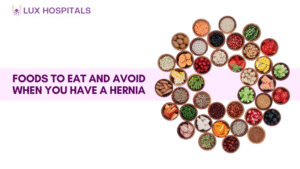What Happens After Your Gallbladder Is Removed?

The procedure known as cholecystectomy, or gallbladder removal surgery, is frequently used to treat gallstones and other gallbladder-related problems. Knowing the procedure, recuperation, and lifestyle adjustments is crucial if you’re getting ready for gallbladder removal surgery. This guide covers everything you need to know, including the cost of gallbladder removal surgery, side effects, post-surgery diet, and foods to avoid after surgery.
What is Gallbladder Removal Surgery?
Gallbladder removal surgery is a procedure that eliminates the gallbladder, an organ responsible for storing bile. The surgery is typically recommended when gallstones cause pain, infection, or blockages. There are two primary types of gallbladder stone removal surgery:
- Laparoscopic Cholecystectomy: A minimally invasive procedure using small incisions and a camera.
- Open Cholecystectomy: A traditional surgery requiring a larger incision, typically recommended for complicated cases.
Why is Gallbladder Removal Surgery Necessary?
Gallbladder removal surgery is often performed due to:
- Gallstones that cause severe pain and block bile flow.
- Gallbladder inflammation (cholecystitis) leads to infection.
- Bile duct blockage, affecting digestion.
- Gallbladder polyps that could be cancerous.
Gallbladder Removal Surgery Cost
The gallbladder removal surgery cost varies based on hospital charges, surgeon’s fees, location, and the type of surgery. On average, laparoscopic cholecystectomy costs less than open surgery due to shorter hospital stays and quicker recovery times. If you’re considering gallbladder stone removal surgery, it’s best to consult with your healthcare provider for an estimate.
What Happens During Gallbladder Removal Surgery?
- Preparation: You may need to fast and undergo medical tests before surgery.
- Anesthesia: General anesthesia is administered.
- Procedure: The surgeon removes the gallbladder through small incisions (laparoscopic) or a more significant cut (open surgery).
- Recovery: Patients are monitored post-surgery and discharged within a day for laparoscopic surgery.
Gallbladder Removal Surgery Side Effects
After gallbladder removal surgery, some patients experience side effects, including:
- Digestive issues: Temporary bloating, diarrhea, or indigestion.
- Pain and discomfort: Soreness around the incision area.
- Changes in bowel movements: Loose stools due to bile directly entering the intestines.
- Fat intolerance: Difficulty digesting high-fat foods.
Post Gallbladder Removal Surgery Recovery
Recovery time depends on the type of surgery performed. Laparoscopic gallbladder removal surgery typically requires 1-2 weeks for recovery, while open surgery may take 4-6 weeks. Follow these recovery tips:
- Get plenty of rest : Avoid strenuous activities for a few weeks.
- Gradually increase activity: Light walking can aid digestion and circulation.
- Follow a proper diet : Focus on a gallbladder removal post-surgery diet to prevent discomfort.
Gallbladder Removal Post-Surgery Diet
After gallbladder removal surgery, the digestive system adapts to bile flowing directly into the small intestine. A healthy diet may help with digestion and discomfort following gallbladder ectomy.
Recommended Foods:
- Fruits and vegetables – Fiber-rich foods support digestion.
- Lean proteins – Chicken, fish, and tofu are easier to digest.
- Whole grains – Brown rice, quinoa, and oats aid bowel movements.
- Low-fat dairy – Helps avoid digestive issues.
- Plenty of water – It keeps the digestive system functioning smoothly.
Foods to Avoid After Gallbladder Removal Surgery
Certain foods can trigger digestive discomfort post-gallbladder removal surgery. To avoid issues like bloating or diarrhea, limit:
- High-fat foods: Fried, greasy, and processed foods.
- Dairy products : Whole milk, cheese, and butter.
- Spicy foods: Can cause irritation and discomfort.
- Caffeinated and carbonated drinks: May lead to bloating.
- Alcohol : It can be hard on digestion.
Long-Term Lifestyle Adjustments
Living without a gallbladder requires minor adjustments to maintain digestive health:
- Eat small, frequent meals instead of large meals.
- Maintain a low-fat diet to prevent bile acid imbalance.
- Incorporate high-fiber foods to support bowel regularity.
- Stay hydrated and engage in light exercise to promote digestion.
Conclusion
Surgery to remove the gallbladder is a safe and efficient way to treat issues connected to the gallbladder. The procedure can go more smoothly if you know what to anticipate before to, during, and following surgery. While some lifestyle changes are necessary, most people can resume normal activities with minimal complications.
By following a proper gallbladder removal post-surgery diet and avoiding specific foods, you can maintain a healthy digestive system and enjoy a good quality of life.
If you’re considering gallbladder stone removal surgery, consult a healthcare provider to discuss the gallbladder removal surgery cost, procedure, and recovery plan that best suits your needs.
Frequently Asked Questions
After gallbladder removal (cholecystectomy), bile flows directly from the liver to the small intestine, which may cause changes in digestion. Most people live normally without a gallbladder.
The first signs of a bad gallbladder include: Abdominal pain (especially in the upper right or middle stomach) Nausea or vomiting Bloating and indigestion Pain after eating fatty foods Jaundice (yellowing of skin or eyes in severe cases)
Gallbladder removal eliminates gallstones, prevents future attacks of gallbladder pain, and reduces the risk of complications like infections or blockages.
Yes, gallbladder removal surgery is considered major surgery, though laparoscopic cholecystectomy is less invasive and has a shorter recovery time. Open surgery is more extensive and requires a longer hospital stay.
After gallbladder removal surgery, you should focus on a low-fat, high-fiber diet. Recommended foods include lean proteins, whole grains, fruits, and vegetables. Avoid fried, fatty, and spicy foods to prevent digestive discomfort.
Laparoscopic surgery typically requires 1-2 weeks for recovery, while open surgery may take 4-6 weeks. Following your doctor’s recommendations and maintaining a healthy diet can aid recovery.
Common side effects include diarrhea, bloating, indigestion, and, in some cases, mild discomfort after fatty meals. These symptoms usually improve over time.
Yes, most people can live a normal life after gallbladder removal. Some dietary adjustments may be necessary, but digestion usually stabilizes over time.
Some individuals may experience changes in digestion, such as mild diarrhea or difficulty digesting fats. However, most symptoms improve with dietary modifications.




















